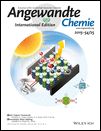Oxidative Decarboxylierung von gesättigten Fettsäuren zu 1-Alken Bausteinen;
ChemikerInnen der Uni Graz entwickelten ein enzymatisches Verfahren zur Herstellung von Propen und 1-Buten aus nachwachsenden Rohstoffen wie z.B. Buttersäure.
Dieses Synthesekonzept wurde in der aktuellen Ausgabe der renommierten Fachzeitschrift „Angewandte Chemie“ als VIP Highlight veröffentlicht.
Enzyme oder Biokatalysatoren ermöglichen Reaktionen die in der traditionellen Synthesechemie häufig als sog. „Dream Reactions“ gelten. Dabei schafft es die Biokatalyse hochselektive Reaktionen ohne den Einsatz von starken Säuren und Basen, in Wasser als Lösungsmittel und milden Reaktionsbedingungen (Raumtemperatur und Normaldruck) zu katalysieren.
Die Transformation von Biomasse in organische Synthesebausteine gilt als wichtiges Gegenkonzept zu einer Erdölbasierten Industrie. Die industrielle Synthese organischer Verbindungen erfolgt zumeist aus kurzkettigen Olefinen (z.B. 1-Alkenen wie Propen) und Aromaten. Der Bedarf für Propen liegt dabei alleine bei ca. 85 mio Tonnen pro Jahr und dient im Wesentlichen zur Herstellung synthetischer Polymere wie Polypropylen. Des Weiteren dienen mittel- und lang-kettigen 1-Alkenen auch als sogenannte „direct drop-in“ Kraftstoffe, wobei diese insbesondere für Flugzeugbenzin (Jet-Fuel) unverzichtbar sind. Als ideales Ausgangsmaterial zur Synthese von 1-Alkenen dienen gesättigte Fettsäuren (Cx:0), da diese in großen Mengen aus natürlichen und nachwachsenden Ressourcen gewonnen werden können. Zahlreiche chemische Methoden existieren zur Herstellung von 1-Alkenen (<C9) aus gesättigten Fettsäuren. Diese benötigen jedoch teure Metallkatalysatoren und den Einsatz hoher Temperaturen (>130 °C).
Die von ChemikerInnen der Uni Graz entwickelte enzymatische oxidative Decarboxylierung von linearen kurzkettigen Fettsäuren (C4:0–C9:0) unter Verwendung der P450 Monooxygenase OleT, Luftsauerstoff und Ameisensäure als Elektronendonor ermöglicht die Darstellung terminaler C3- bis C8-Alkene. Im Vergleich zu anderen bekannten biotechnologischen/biokatalytischen Verfahren konnten sehr hohe Produkttiter von bis zu 0.93 g L-1 und TTNs >2000 erreicht werden. Essentiell für den erfolgreichen Prozess war die Entwicklung einer Elektronentransferkette, die Elektronen von Glukose, Ameisensäure oder Phosphonat auf die P450 Monooxygenase transferieren kann, um die Bindung und Spaltung von Luftsauerstoff am Häm-Eisen zu ermöglichen. In der Folge katalysiert das Enzym die Bildung eines ß-Kohlenstoffradikals an der Fettsäure. Nach einer Umlagerungsreaktion kommt es zur Abspaltung der Carboxyl-Gruppe in Form von CO2 (ähnlich der Kolbe-Elektrolyse), jedoch werden 1-Alkene und nicht Alkane als Produkte erhalten. Mithilfe dieses Reaktionssystems lassen sich somit auf biokatalytischem Weg industriell wichtige Alkene, wie z.B. Propen und 1-Octen zum ersten Mal vollständig aus nachwachsenden Rohstoffen herstellen.
Industriepartner der Grazer ChemikerInnen ist das deutsche Unternehmen Evonik, das die neue Methode bereits international zum Patent angemeldet hat.
Publikation:
Oxidative Decarboxylation of Short-Chain Fatty Acids to 1-Alkenes
Alexander Dennig, Miriam Kuhn, Sebastian Tassoti, Anja Thiessenhusen, Stefan Gilch, Thomas Bülter, Thomas Haas, Mélanie Hall, and Kurt Faber
Angewandte Chemie International Edition, June 11, 2015. DOI: 10.1002/anie.201502925
